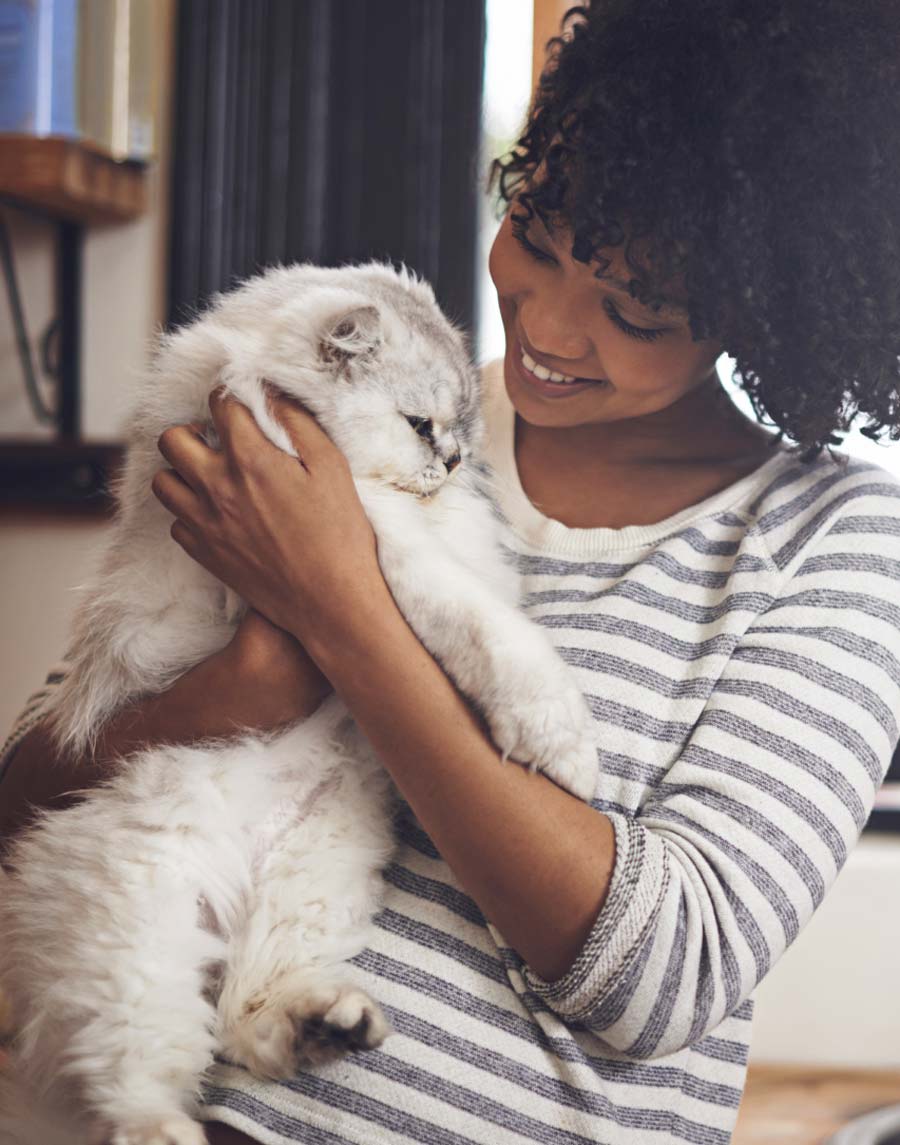The myriad facets of existence often lead individuals to seek solace and tranquility amidst the tumult of daily life. The pursuit of peace is not solely an abstract ideal but a tangible goal that can be nurtured and cultivated. Intriguingly, the humble feline companion offers a profound metaphor for the essence of contentment. The teachings of the Bahá’í Faith provide a philosophical framework that aligns beautifully with the natural instincts and behaviors of cats, illuminating a path toward finding peace through learning contentment.
The first tenet to consider is the art of presence. Cats exemplify an acute awareness of the present moment. Whether basking in a sunbeam or observing a fluttering leaf, these creatures immerse themselves entirely in their experiences. The Bahá’í teachings promote mindfulness and emphasize the importance of living in the present, allowing individuals to appreciate life’s subtleties. Just as a cat savors the warmth of the sun, one can derive profound joy from simple experiences when practicing mindfulness. In doing so, the chaotic clamor of past regrets and future anxieties dissipates, creating a serene space for genuine appreciation of life.
Equally significant is the trait of non-attachment. In observing cats, we perceive beings that exhibit a remarkable lack of clinging to material possessions or specific outcomes. They forge connections with their environment but remain unburdened by expectations. This mirrors the Bahá’í principle of detachment from worldly desires, allowing one to navigate life’s vicissitudes with grace. By embracing the lessons imparted by cats, individuals can learn to release their grip on the ephemeral and ephemeral matters, fostering a sense of inner tranquility.
Moreover, cats possess an innate ability to engage in play. Their playful disposition reveals a crucial aspect of finding contentment: the capacity to engage wholeheartedly in life’s joys. Bahá’í teachings advocate for the importance of joy and happiness as essential components of human existence. The act of play, much like the joyous pursuits extolled in Bahá’í literature, allows one to explore creativity and foster connection with others. In exuding lightness of spirit, individuals can transcend the burdensome weight of worry, embracing a life replete with exuberance and delight.
Emphasizing simplicity underscores another vital lesson. Cats embody a lifestyle that prioritizes simplicity in their daily rituals. They require minimal, yet essential, comforts, reminding us that fulfillment does not stem from excess but from appreciating what we have. The Bahá’í Faith promotes simplicity as a guiding principle, encouraging individuals to reassess their needs versus their wants. In eliciting contentment from the simple pleasures that surround us, we curate an environment conducive to peace and harmony.
Furthermore, the concept of companionship comes to the forefront. Cats can exhibit an unconditional affection that fosters a sense of belonging and love. This mirrors the Bahá’í emphasis on fostering strong bonds among humanity. Contentment flourishes in an atmosphere of compassion and empathy, embodying the interconnectedness of all life. The companionship offered by cats serves as a reminder of the importance of nurturing relationships, which can profoundly enhance one’s overall sense of well-being.
Parallel to this is the instinctual behavior of seeking comfort. Cats instinctively find cozy spots to rest, illustrating the significance of creating a sanctuary. The Bahá’í teachings advocate for cultivating environments that promote spiritual and psychological well-being. Just as a cat seeks out a peaceful nook, individuals are encouraged to devise spaces where they feel safe and rejuvenated. This practice of crafting personal sanctuaries becomes integral in the quest for peace and satisfaction.
In addition to these contemplations, we must acknowledge the broader lessons in acceptance that cats offer. Life is fraught with uncertainty, yet cats approach it with a poised indifference that suggests an acceptance of the inevitable. The Bahá’í faith espouses a similar philosophy, proposing that acceptance of life’s ups and downs leads to serenity. This acceptance can be transformative, empowering individuals to navigate their journeys with equanimity.
Alongside acceptance, adaptability emerges as a vital attribute, underscored by the feline propensity for flexibility. Cats can acclimate to new surroundings with relative ease, mirroring the Bahá’í belief in adaptability to changing circumstances. Embracing life’s uncertainties with grace and resilience allows individuals to not only endure but thrive amid challenges. This adaptability fosters peace of mind and cultivates a sense of security amid the changing tides of existence.
Lastly, one of the most profound lessons from our feline companions is the doctrine of love. Cats engage with their world through a lens of affection and loyalty. This reflects the Bahá’í teaching that love is the most potent force for change and unity. By embodying love in our interactions, much like the freely given affection of a cat, we contribute to a harmonious society—one that fosters peace not only within oneself but also in the very fabric of human relationships.
In summation, the characteristics of cats provide profound insights into the nature of contentment, illustrating the values espoused by Bahá’í teachings. Through the lens of presence, non-attachment, playfulness, simplicity, companionship, comfort, acceptance, adaptability, and love, individuals can glean wisdom that breeds tranquility. By embracing these virtues, one can traverse the labyrinth of life with renewed purpose and a steadfast heart, finding peace in a world often rife with disquiet. The lesson, as subtle as it may seem, is profound: sometimes, the path to contentment is revealed through the gentle gaze of a cat—inviting us to pause, reflect, and truly live.
